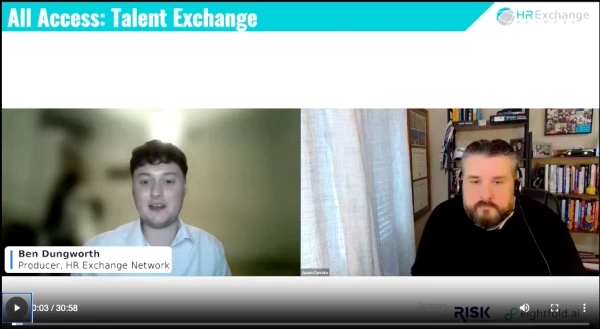
Recruiting and talent acquisition require flexibility and adaptability in this post-COVID, post-Great Resignation era. While much is changing at an accelerated rate, much of this process is human-centric. Therefore, it has not changed much at all, and Human Resources leaders can draw on historically smart strategies.
Kurt Webster, Director of Recruitment and Workforce Planning at MaineGeneral Health, shares insight about what HR leaders can count on as they entice people to work for them and create strong talent pipelines. Webster will be a featured speaker at the 2023 Recruiting and Talent Acquisition online event, which is free to join.
HREN: What are your best tips for finding and hiring someone who is the right fit?
KW: These aren’t anything new – but that’s kind of the point – what worked in pre-pandemic times, still works now.
HREN: How can HR leaders leverage company brand and culture in recruiting and hiring?
KW: As I’ll outline in my presentation, I believe that TA Professionals need to have internalized the brand. To be able to speak to it – not just the words on Mission Statement – but be able to articulate what the brand feels like. You lead with the brand.
HREN: What do you see as the purpose of on-site work? How do you convince people that on-site work is beneficial, even if theoretically their jobs could be done remotely?
KW: 'Convincing' a candidate that on-site work is beneficial is the wrong approach. The correct approach is to find the candidates who WANT to work on-site – the candidates who prefer it, and understand the benefit it gives them. That way it’s about them and what they want – not what the organization wants (even if that IS what the organization wants).
I maintain that tens of thousands of years of history prove we are a social species. We developed as a species and have thrived as a species together. Two years of remote work and technology that makes it possible isn’t going to change that. If you look at remote work – and where it is prevalent – it’s in cities. Why? Because actually getting to and from work in cities is hellish. Remote work gives people more time.
Flexibility is the critical piece – people want flexibility to be able to adjust where and when they work – to accommodate for the travel.
I feel it’s an engagement issue, a health and mental health issue, and a business issue.
HREN: What will be the highlight of your session? Why should we tune into it?
KW: I hope the highlight of the session will be a bit of a thought exercise/refocus/conversation on what is the same as it has always been when it comes to talent acquisition. There’s so much talk of what’s changed in current discourse, I feel we are forgetting what hasn’t.
HREN: Is there anything else you'd like to add? If so, what?
KW: Looking forward to the session!
Don't miss your chance to join Webster's session and others at the 2023 Recruiting and Talent Acquisition online event to learn more about how to attract and retain top talent. It's free to register, and those who join HR Exchange Network for the live event are eligible for SHRM credits.
Join the HR Exchange Network community

Join HR Exchange Network today and interact with a vibrant network of professionals, keeping up to date with the industry by accessing our wealth of articles, videos, live conferences and more.
Join Now

















